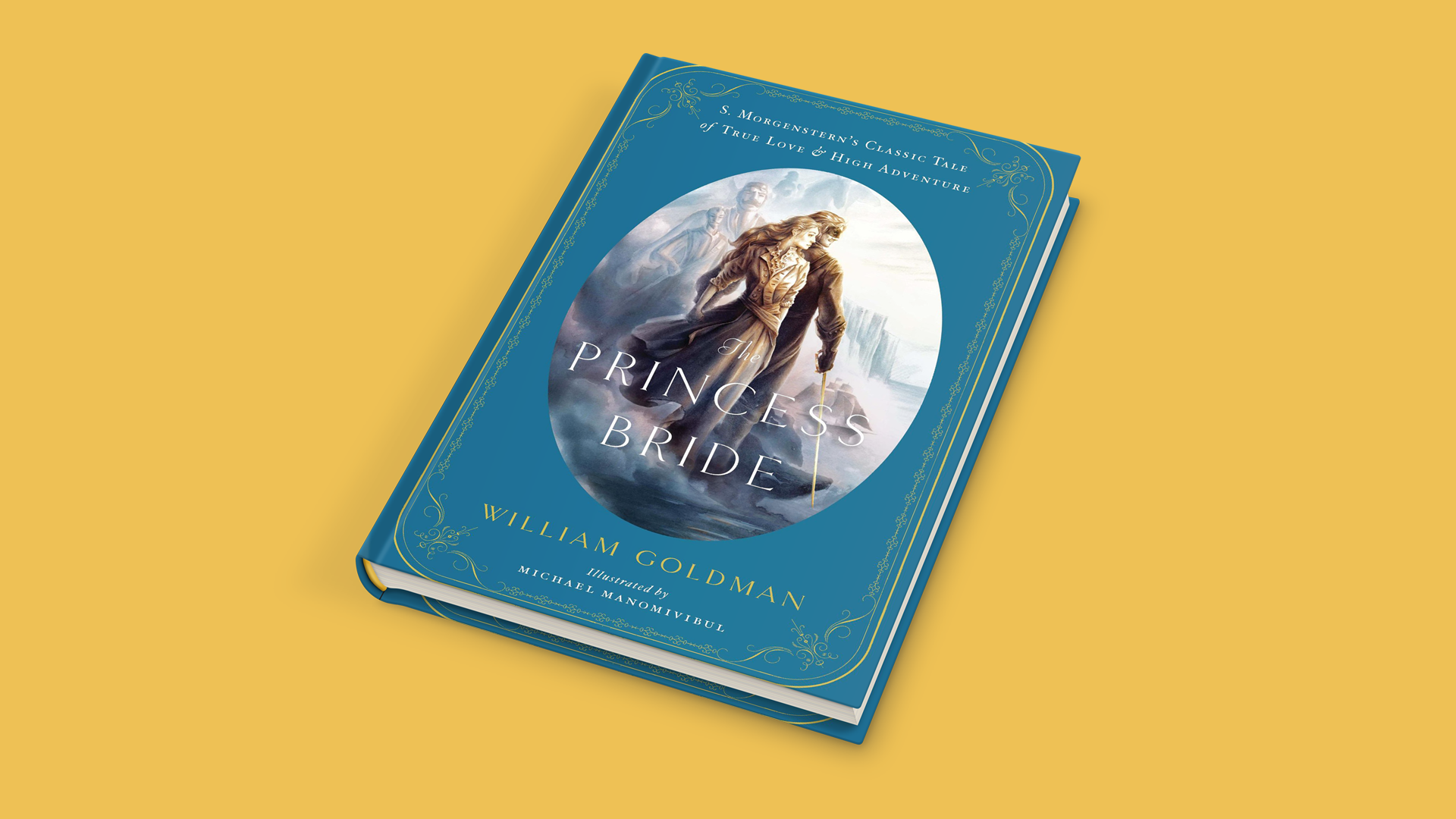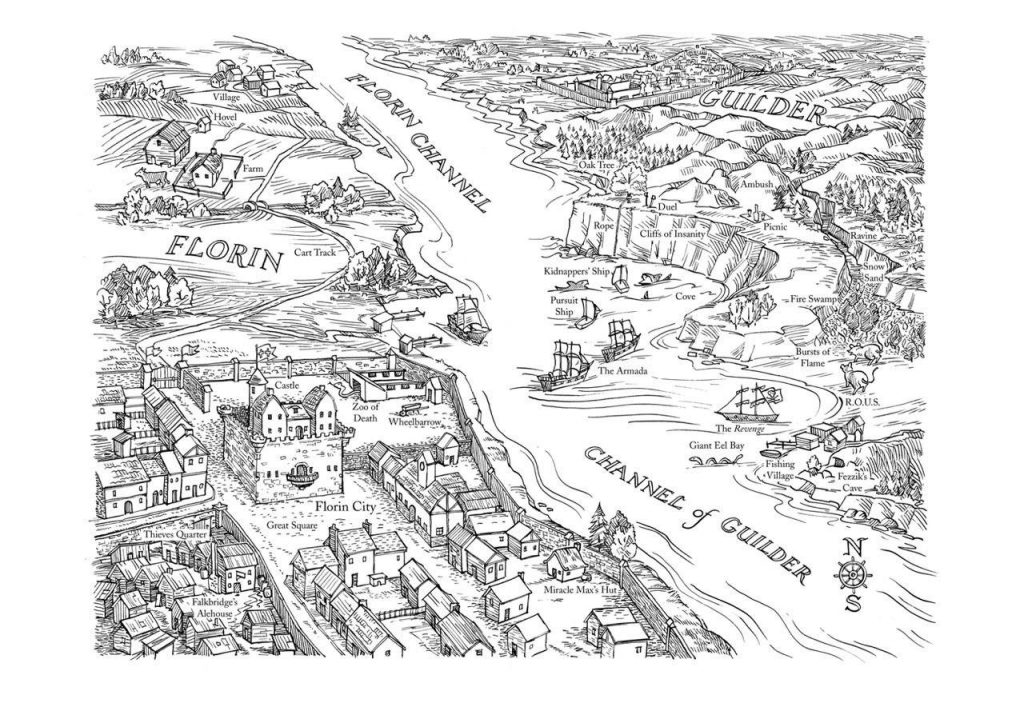When you first start reading William Goldman’s masterpiece, you can’t shake the feeling that you’re reading a Terry Pratchett novel that takes itself less seriously. While the Discworld universe, for example, has an even more absurd internal logic, it definitely makes a lot more sense to its inhabitants. The Princess Bride on the other hand, feels a bit like something someone wrote because they lost a bet and were challenged to write the best fantasy tale ever.
The Princess bride ticks off every imaginable fairy tale checkbox:
- rags to riches plot
- impossible ‘true’ love
- magical objects and miracles
- princes and princesses and conflicting kingdoms
- life-long pursuit of revenge
- the clash between good and evil
- granted, it doesn’t have talking animals, but we’ll let that slide
Where the book starts to feel less fantasy-like is in its cynical tone. True love is the first one to show its cracks, when Buttercup, the main protagonist, swears to never love again but ends up marrying for convenience. In classical fairy tales, beauty is associated with positive human attributes. In The Princess Bride, beauty goes hand in hand with shallowness: “Just because you’re beautiful and perfect, it’s made you conceited.” Old men are not wise, but senile. And life itself is not idyllic. In Goldman’s words, rather: “Life isn’t fair, it’s just fairer than death, that’s all.”
Another aspect of The Princess Bride that is less typical for a fantasy novel is it’s narrative style. The main plot of the novel is wrapped around an imaginary meta story. The Princess Bride was supposedly written by S. Morgenstern, and it’s the screenwriter-author that decides to abridge this story in order to pass it on to his son. This convoluted wrapper makes it a bit more hard for readers to get into the first chapters of the book, but once the convention has been established, it allows for some great jokes to be sprinkled throughout the story. Goldman interrupts the sometimes cynical sometimes high tempo of the plot with very down to earth quantitative remarks like: “There have been five great kisses since 1642 B.C…(before then couples hooked thumbs.) And the precise rating of kisses is a terribly difficult thing, often leading to great controversy…. Well, this one left them all behind.”
The book’s unique slapstick high-fantasy humorous style has actually also led to it becoming a cult classic movie starring Robin Wright. Yes, she was an innocent princess before becoming ruthless miss president. Obviously, I had to watch the movie after reading the book and I have to say, I was surprised. The humor was left intact, but the cynical layer was stripped in favor of preserving the romantic ideal. The high IMDB rating is proof enough that this sold better at Hollywood.
All in all, The Princess Book is a great read in between serious books. It cleans your mind’s palate, so to speak, by combining primordial themes with modern commentary. It might get a tad predictable halfway through, and the unique narrative wrapper might feel repetitive at some point. But all in all, by the end, you’ll just feel sorry there aren’t any sequels.




No Comments